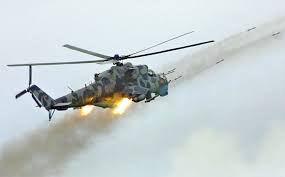
Russia Strikes Syria: Shifting Conflict Dynamics
Updated Oct 2023
Introduction:
In the tumultuous landscape of the Syrian conflict, a new force has emerged, casting its shadow over the war-torn nation. Russia, with its strategic military intervention, has stormed onto the scene, leaving an indelible mark on the shifting dynamics of the conflict. The world watches with bated breath as Russia strikes in Syria, wielding its power and altering the course of the war.
Russia’s entry into the fray injected a fresh wave of uncertainty and intrigue as the conflict raged on. The once bustling theatre of war became a battleground where Russia’s ambitions clashed with the aspirations of various rebel groups and the international community at large. The implications of Russia’s strikes reverberate far beyond the borders of Syria, reshaping geopolitical alliances and challenging the established order.
In this article, we embark on a journey through the labyrinthine complexities of the Syrian conflict, guided by the key phrase “Russia Strikes in Syria.” Together, we explore the motives that propelled Russia to take decisive action, dissect the impact of its military might, and navigate the ever-evolving landscape of a conflict caught in the throes of transformation.
Join us as we unravel the enigma of Russia’s involvement, peering into the geopolitical chessboard where nations vie for influence and power. Amidst the chaos and devastation, a new narrative emerges—one that promises to reshape the destiny of a nation and redefine the balance of power in the region.
The Impact of Russian Air Strikes:
The thunderous roar of Russian air strikes has reverberated across the war-torn skies of Syria, leaving an indelible mark on the conflict. With their relentless precision, Russia has unleashed a formidable display of military might, forever altering the course of the war. The impact of these strikes extends far beyond the physical devastation inflicted upon rebel strongholds; it has reshaped the very fabric of the conflict itself.
One cannot underestimate the strategic significance of Russia’s decision to target rebel groups and those trained by the U.S. Central Intelligence Agency (CIA). This audacious move sent shockwaves through the international community, challenging the existing power dynamics and asserting Russia’s unyielding commitment to bolstering the Syrian government under President Bashar al-Assad. In doing so, Russia has demonstrated its unwavering resolve to protect its regional interests and solidify its position as a key player in the Middle East.
The consequences of these air strikes have been profound. Rebel groups, once emboldened by their alliance with Western powers, have been forced to reassess their strategies and fortifications. The balance of power has shifted, with the scales tilting in favor of the Syrian regime. The once-dominant rebels now find themselves on the back foot, grappling with the overwhelming force unleashed upon them.
Beyond the immediate military impact, these air strikes have ignited a firestorm of geopolitical ramifications. The fragile dynamics between global powers have been tested, leading to a reevaluation of alliances and a reshuffling of priorities. The ripple effect of Russia’s actions extends far beyond the Syrian borders, reaching the corridors of power in Washington, Brussels, and beyond.
As the dust settles over the battered landscape of Syria, the echoes of the Russian air strikes continue to resonate. The war has been forever altered, and the consequences will shape the region for years to come. The world watches with bated breath as the impact of these strikes unfolds, holding its collective breath in anticipation of what lies ahead in this ever-evolving theatre of conflict.
Motives Behind Russia’s Involvement:
The multifaceted motives that propelled Russia’s intervention in Syria are a complex tapestry woven from geopolitical calculations, security concerns, and strategic ambitions. At the heart of Russia’s involvement lies a determination to safeguard its vital geopolitical interests in the region, ensuring its continued influence and asserting its presence on the global stage.
One of the foremost drivers behind Russia’s intervention is the protection of its strategic assets in Syria. The naval base in Tartus holds immense significance, serving as Russia’s only Mediterranean foothold and providing a crucial gateway to the wider Middle East. By supporting the Syrian government, Russia safeguards its access to this vital naval facility, securing its maritime interests and projecting power across the region.
Another compelling motive is Russia’s unwavering commitment to combating terrorism. Extremist groups, such as the Islamic State (ISIS), pose a direct threat to regional stability and Russia’s security. The spectre of radicalized fighters returning from Syria to attack Russian soil looms large. By intervening militarily, Russia aims to stem the tide of terrorism, prevent the spread of extremist ideologies, and protect its citizens from the horrors unleashed by these groups.
In supporting President Bashar al-Assad’s government, Russia seeks to shape the future of Syria in its own image. By bolstering the Syrian regime, Russia solidifies its position as a key player in the Syrian conflict and as a significant stakeholder in future negotiations or political settlements. This involvement grants Russia a seat at the table where the fate of the nation is decided, enabling it to safeguard its interests and exert influence over the regional landscape.
The motives driving Russia’s intervention in Syria are a complex interplay of self-interest, security concerns, and strategic calculations. By understanding these motivations, one gains a clearer perspective on Russia’s role in the conflict and the broader implications it holds for the region and beyond.
Russia Strikes In Syria: The International Response:
The international response to Russia’s strikes in Syria has elicited a diverse range of reactions, reflecting the complex web of geopolitical interests and humanitarian concerns at play. While some nations, including Iran and Iraq, have aligned themselves with Russia’s efforts, others have voiced apprehensions regarding the devastating impact on civilian lives and the exacerbation of the already dire humanitarian crisis. Among the nations expressing reservations, the United States has emerged as a prominent critic, perceiving Russia’s actions as a hindrance to the pursuit of peace and stability in the region.
The alignment of certain nations with Russia’s intervention is driven by a convergence of interests. Iran, for instance, shares a common objective with Russia in supporting the Assad government and countering the threat of extremist groups. Iraq, too, has found itself in a complex position, grappling with the challenges posed by the Syrian conflict and seeking avenues for regional cooperation.
However, concerns regarding civilian casualties and the humanitarian crisis have sparked condemnation from various quarters. The relentless air strikes have exacted a heavy toll on innocent lives and contributed to the displacement of millions, further exacerbating an already dire situation. International organizations and human rights advocates have expressed deep-seated alarm, urging all parties involved to prioritize protecting civilians and facilitating humanitarian access to those in need.
The United States, in particular, has been a vocal critic of Russia’s actions. Viewing Russia’s intervention as an impediment to the pursuit of peace, the U.S. has emphasized the need for a political resolution and removing Assad from power. The strained relations between the two global powers have added layer of complexity to the conflict, with the repercussions reverberating beyond the borders of Syria.
As the conflict in Syria unfolds, the international response remains a mosaic of divergent perspectives. The complex interplay between geopolitical interests, humanitarian concerns, and regional dynamics underscores the challenges faced in achieving a unified approach to resolving the crisis. The quest for a sustainable solution requires navigating these intricate fault lines while keeping the well-being of the Syrian people at the forefront of the collective effort.
Changing Dynamics on the Ground:
The resounding success of Russia’s strikes in Syria has triggered a seismic shift in the dynamics of the conflict. The rebel groups, including the Free Syrian Army, now find themselves in the crosshairs of Russia’s relentless military campaign. These strikes have dealt significant blows to the capabilities and fortifications of these groups, forcing them to reevaluate their strategies and alliances amidst the intensifying pressure. The absence of a centralized command structure among these disparate factions further compounds their vulnerabilities in the face of Russia’s relentless onslaught.
The extremist factions are equally impacted by Russia’s intervention, most notably the menacing presence of ISIS. The strikes have disrupted their operational capacities and put them on the defensive. With their sanctuaries and strongholds now under constant threat from Russia’s military offensives, the once-pervasive influence of these extremist groups has been significantly curtailed. Russian forces’ relentless pursuit of these factions has exposed their vulnerabilities and disrupted their ability to spread terror and sow chaos.
As a result of Russia’s strikes, the power dynamics on the ground have undergone a tangible transformation. The balance of power has tilted in favour of the Syrian regime, bolstered by Russia’s u
Geopolitical Ramifications:
Russia’s deepening involvement in Syria carries significant geopolitical ramifications that extend beyond the immediate region. By forging alliances with Iran Iraq, and garnering support from China, Russia has strategically positioned itself as a significant player in the Middle East. This shift in alliances and the growing influence of non-Western actors challenges the traditional dominance of Western powers and has the potential to reshape the broader geopolitical landscape.
The alliance between Russia and Iran, particularly, has emerged as a notable force in the region. Both countries share a common interest in supporting the Assad government and countering the influence of extremist groups. This partnership has strengthened Russia’s military capabilities in the region and challenged the longstanding dominance of Western powers, notably the United States, in shaping the Middle East’s political landscape.
Russia’s growing ties with Iraq also contribute to the shifting geopolitical dynamics. The cooperation between the two countries allows Russia to expand its influence in the region while providing Iraq with an alternative source of support and partnership. This diversification of alliances challenges the traditional power structures and spheres of influence, creating new dynamics that have the potential to reshape regional politics.
Furthermore, Russia’s growing support from China adds another layer to its geopolitical position. Both countries have aligned interests in countering Western influence and promoting a multipolar world order. China’s economic investments and diplomatic support for Russia’s actions in Syria enhance Russia’s standing and contribute to reconfiguring geopolitical alignments.
Taken together, these geopolitical ramifications signify a changing landscape characterized by the emergence of alternative power centres and the erosion of the dominance of Western powers. The growing influence of Russia, in collaboration with its allies, challenges established norms and spheres of influence, creating new fault lines and potential shifts in regional dynamics. As these alliances and power dynamics continue to evolve, the broader geopolitical landscape is poised for transformation, with implications beyond the confines of the Syrian conflict.
Russia Strikes Syria: Exploring Far-Reaching Consequences
The potential long-term consequences of Russia’s intervention in Syria, characterized by Russia’s strikes in Syria, are far-reaching and multifaceted, with implications spanning political, humanitarian, and geopolitical dimensions. Here are several key areas where the impact of Russia’s strikes in Syria may have enduring effects:
1. Political Landscape: Russia’s military strikes in Syria have bolstered the position of President Bashar al-Assad’s government, increasing the likelihood of his regime remaining in power. This may lead to a protracted period of stability under Assad’s rule, but it also raises concerns about the prospects for political reform, reconciliation, and the inclusion of opposition groups in the future governance of Syria.
2. Humanitarian Crisis: The prolonged conflict and Russia’s military operations, including strikes in Syria, have exacerbated the humanitarian crisis in Syria. The large-scale displacement of civilians, destruction of infrastructure, and loss of lives have created long-term challenges for the country’s reconstruction and the well-being of its people. Addressing the humanitarian needs and facilitating the safe return of displaced populations will be critical for long-term stability.
3. Regional Influence: Russia’s strikes in Syria have solidified its presence and influence in the Middle East. Russia has expanded its sphere of influence by establishing military bases and forging alliances with key regional actors, such as Iran. This has implications for regional power dynamics, including potential shifts in alliances and the balance of power in the region.
4. Geopolitical Rivalries: Russia’s strikes in Syria have heightened tensions with other global powers, particularly the United States. The conflict has become a theatre for proxy rivalries, exacerbating existing geopolitical tensions. The long-term consequences of these rivalries could impact broader regional dynamics and global security.
5. Counterterrorism Efforts: While Russia has positioned its strikes in Syria as a counterterrorism operation, the long-term effectiveness of its approach remains uncertain. Suppressing extremist groups in the short term may give way to new challenges and the resurgence of other radicalized elements if the root causes of extremism are not adequately addressed.
6. International Norms and Human Rights: Russia’s strikes in Syria have raised concerns about respecting international norms and human rights. Reports of civilian casualties, indiscriminate bombings, and the targeting of healthcare facilities have drawn criticism from various quarters. The long-term consequences could include an erosion of trust in international institutions and norms and potential shifts in global norms related to military interventions and the protection of civilians.
The full extent of the long-term consequences of Russia’s strikes in Syria is yet to be fully realized. As the conflict evolves, these consequences will continue to unfold, shaping the future trajectory of Syria and the broader regional landscape.
Concluding Thoughts on Russia Strikes Syria
In conclusion, the Russian strikes in Syria have undeniably profoundly impacted the conflict and its implications. Russia’s intervention has shifted the balance of power on the ground, bolstering the position of the Assad government and weakening rebel groups and extremist factions. The alignment of Russia with Iran and Iraq and growing support from China has reshaped geopolitical alliances and challenged the dominance of Western powers in the region.
The long-term consequences of Russia’s intervention are still unfolding and will continue to shape the future of Syria and the broader Middle East. The political, humanitarian, and geopolitical ramifications are complex and multifaceted, with implications for regional stability, counterterrorism efforts, and respect for international norms and human rights.
As the conflict evolves, it is crucial to remain attentive to the evolving dynamics and prioritise the Syrian people’s well-being. Pursuing a sustainable solution will require collective efforts, diplomacy, and a commitment to addressing the underlying causes of the conflict. The world continues to watch as Russia’s intervention unfolds, recognizing its significant impact on the course of the war and its potential implications for the region and beyond.
Diverse Views: Compelling Articles from Various Angles

Mastering the Art of Retirement: How to Start Saving for Retirement at 45 with Grace and Style

Investor Sentiment in the Stock Market: Maximizing Its Use

What is the Average Student Loan Debt in the US? Understanding the Crisis

Student Debt Crisis Solutions: Halting the Madness is Essential

Financial Freedom Reverse Mortgage: A Sophisticated Strategy for a Comfortable Retirement

Early Retirement Extreme: A Philosophical and Practical Guide to Financial Independence

Student Loan Refinance: A Smart Move Towards Financial Freedom – Poise in Debt Reduction

How to Lose Money: The Dangers of Ignoring Market Trends and Psychology in Stock Investing

How much has the stock market gone up in 2023? -A Refined Analysis

Maximizing Gains: Mastering Market Sentiment Indicators

How to Achieve Financial Goals: The Midas Touch for Your Financial Dreams

Sophisticated Strategies for US Dollar Index Investing: Elevate Your Forex Game

How much has the stock market dropped in 2023?

Visionary Views: How to Achieve Financial Freedom Before 40

A Major Problem with ESOPs is That Employees Can Lose Big


